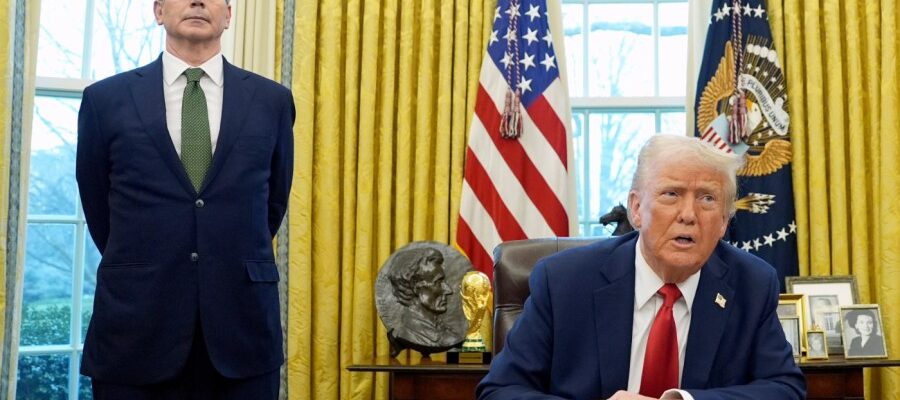The Trump administration imposes sanctions on Russian oil companies as peace talks falter

On Wednesday, the Trump administration announced new sanctions on major Russian oil companies as efforts to end the war in Ukraine falter.
The Treasury said it had imposed sanctions on Russia’s two largest oil companies, open-ended equity firm Rosneft Oil Company and Lukoil OAO. The move comes as part of an attempt to increase pressure on Moscow to end the war that began in 2022 when Russian forces invaded Ukraine.
“It is time to stop the killing and call for an immediate ceasefire,” Treasury Secretary Scott Besent said in a statement.
“Given President Putin’s refusal to end this senseless war, the Treasury Department is imposing sanctions on Russia’s two largest oil companies that fund the Kremlin’s war machine,” Besant said. He added, “Treasury stands ready to take further action if necessary to support President Trump’s efforts to end another war. We encourage our allies to join us and adhere to these sanctions.”
The Treasury Department also imposes sanctions on dozens of subsidiaries of Rosneft and Lukoil.
Kiev and some of Ukraine’s most hardline supporters welcomed the move as a good first step.
Ukraine’s ambassador to the United States, Olga Stefanyshina, said in a statement: “For the first time during the term of the 47th President of the United States, Washington decided to impose full sanctions on Russian energy companies.”
“This came after numerous attempts to give Russia the opportunity to start real negotiations to end the war. This decision is fully consistent with Ukraine’s long-standing position, which has repeatedly emphasized that peace can only be achieved through force and by exerting pressure on the aggressor using all available international tools.”
Michael Carpenter, who served as senior director for Europe on former President Biden’s National Security Council, called the move “long-overdue and very welcome news. Kudos to Secretary Bescent.”
Trump’s decision to impose oil sanctions represents one of the first times a president has flexed the sanctions authority in office against Russia and signals he could go further and tougher against the Kremlin, experts who focus on combating Russia’s war machine against Ukraine said.
“There is still a lot of progress on energy and oil sanctions,” said Daniel Fried, former US ambassador to Poland and distinguished fellow at the Atlantic Council. “But with this move, the Trump administration is crossing the line to put additional pressure on Russia, in response to Putin’s brutality and stonewalling.”
“These represent the first U.S. sanctions on Russia during Trump’s second term,” said Edward Fishman, author of Choke Points: American Power in the Age of Economic Warfare and a senior fellow at Columbia University’s Center for Global Energy Policy.
“I expect, at the very least, some pushback on Russian oil in the short term. Whether this represents long-term strategic pressure on Russian oil revenues – the lifeblood of Putin’s economy – will depend on US commitment to active and sustained enforcement.”
The announcement of the sanctions comes one day after the White House announced that there are no plans for President Trump to meet with Russian President Vladimir Putin in the near future, dispelling talk of a summit between the two men in Hungary in the coming weeks.
It also comes after Russia on Tuesday night launched another round of missile and drone attacks on Ukraine, killing six people, including two children.
A Senate bill led by Sen. Lindsey Graham (R-S.C.) to impose tough sanctions on Russia has dozens of co-sponsors, and lawmakers said they were waiting for the green light from the White House to bring the bill to a vote. Trump has repeatedly said that it is up to his discretion whether to proceed with these sanctions.
Trump also called on India and European countries to stop buying Russian oil and gas, arguing that this would cut off a major source of funding for Moscow’s war efforts.
The Biden administration had previously imposed numerous sanctions on Russia during the first two years of the war, targeting major companies as well as Putin’s allies.
This story was updated at 6:11 p.m
